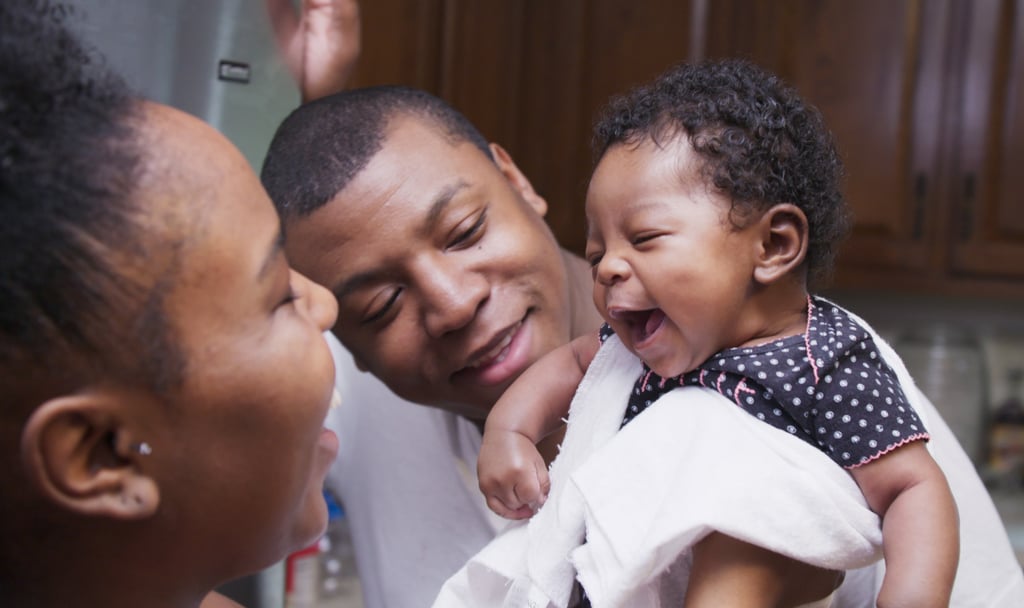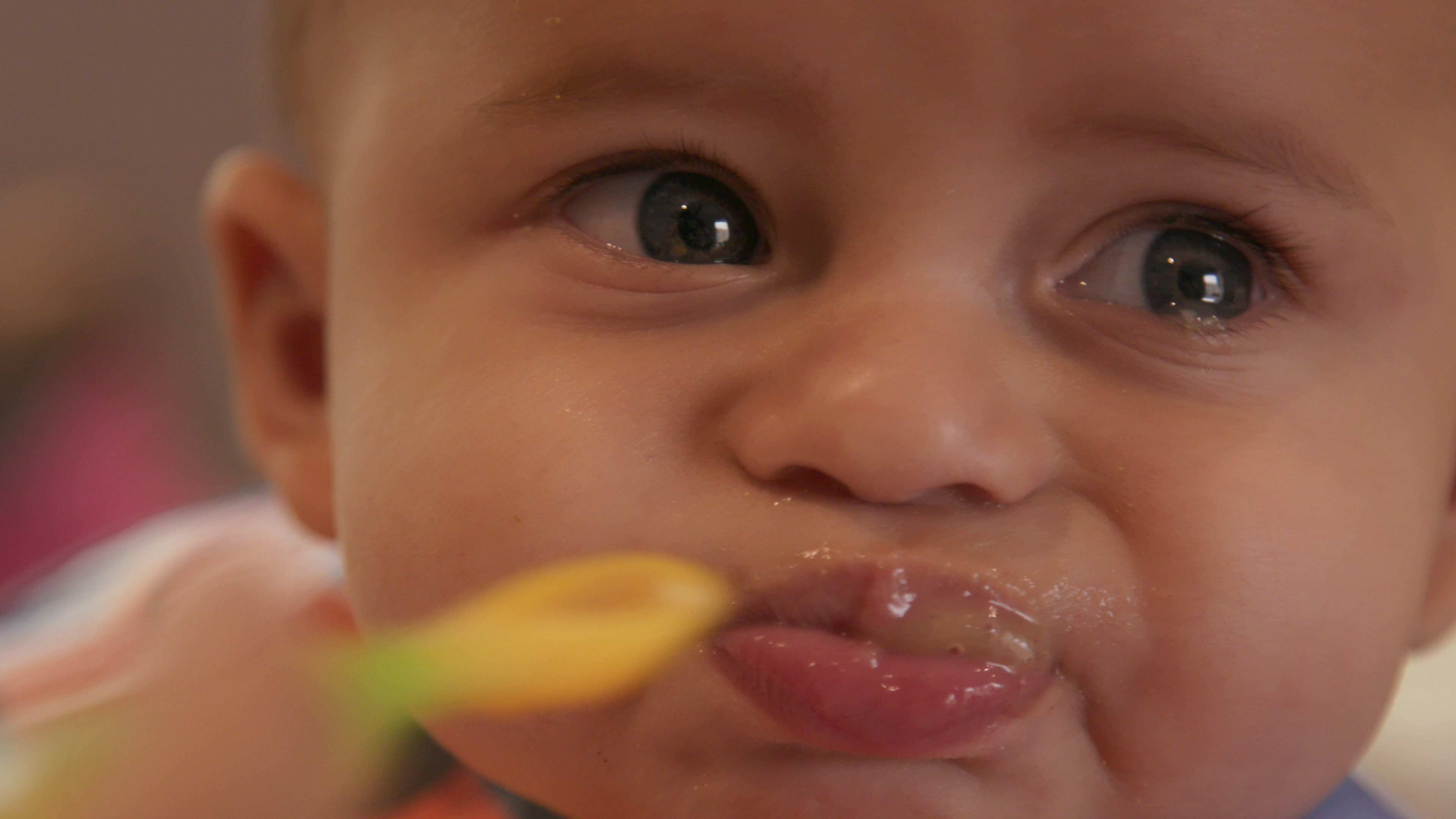This new series digs deep into the science behind our little ones – here’s everything we know about 'Babies' on Netflix
Babies is the latest binge-worthy documentary series on our favourite streaming service, Netflix.


When series one hit Netflix earlier this year, it joined the ranks of binge-worthy viewing on the streaming channel.
The Netflix Babies docu-series follows 15 different newborns from all over the world, as both parents and baby begin to navigate their way through the first year of the little one's life.
Series one taught us about the first year of a baby's life - everything from the biology of bonding to the role that family pets play in the strengthening of a newborn's immune system. And now as series two has landed on Netflix and is available to stream right now, we're buckling in for another journey through the life of a newborn baby.
READ MORE: Best kids' films on Netflix to entertain little ones - and you!
Of course all the science and psychologically in Babies on Netflix is paired with plenty of adorable close ups of cherub-faced babies laughing, scrambling to stand and reaching out to their parents. If series one was enough to make us coo out loud, then we should be well set-up for the second instalment.
Celebrating the cuteness of our babies, along with incredible explanations and facts about how we all come into this world and grow up, Babies on Netflix is not a show to be missed.
What is Netflix's Babies about?
https://youtu.be/wfE6vwk8Sfs
GoodtoKnow Newsletter
Parenting advice, hot topics, best buys and family finance tips delivered straight to your inbox.
Alongside a handful of world-renowned scientists, Babies explores new ground-breaking research into child development.
From the biology of caregiving – such as how social interaction and stress can alter the brains of both parents and newborns - to a look into the ways that walking changes a baby’s world, and how the food babies eat nourishes and protects them.
MORE: Childhood eczema cannot be prevented by daily moisturising, study finds
Babies delves deep into how our little ones become fully-formed human beings, or as one of the professors says - how they become "masters of the universe".
Series two landed on Netflix in June and features the newborns from the firs series, but now they’re all grown up – walking and talking – with six new episodes to complete the 3-years worth of filming.
The new episodes delve into what goes on in the mind of a baby, how they make sense of the world around them and what exactly it is that makes us all human. Taking on topics like the desire for socialisation, how we acquire normality, why humour is so important and how toddlers view their parents, the series makes new ground in our understanding of our ourselves – as well as the babies.
How many episodes are there in Netflix's Babies?
There are twelve episodes in total of the Netflix show, with each episode focusing on a different aspect of a baby's development, and parenting.
In episode one of series one, we learnt about the 'biology of bonding' and how parents connect with their new babies. One of the many featured professors and scientists in the series, Professor Ruth Feldman, also revealed that the rise in oxytocin that mothers experience can be experienced by the father of the baby too.
She said in the first episode, "We discovered that the more you do with a baby, and really lift your sleeves and take care of the the child and wash it and feed it, engage in a parental role - the more your oxytocin system will activate. This is amazing. Fatherhood is biological...it's as deep as motherhood."
Episode two centred around a child's first food, while the third delved deep into the impact of crawling.
In the fourth episode, we discovered how babies learn to speak, and in the fifth episode, researchers took a look into sleep. Finally, there was insight into how walking changes a baby's world completely in the last episode.
What did we learn from Netflix's Babies?

In the opening of the first ever episode, called ‘Love’, we meet one-day-old Willow – along with parents Adam and Rachel and toddler sister, Lily. The family are just starting out on their journey, accompanied by professor of developmental social neuroscience, Ruth Feldman in Tel Aviv, Israel.
She looked into what happens in our brains when we fall in love with our babies in those early days and weeks. And she made some amazing discoveries.
Babies change their parents' brains forever
We all know (or maybe even have experienced first hand!) that when a baby cries at night, it is usually their mum who gets up to check on them. And even when it is the father, it’s the mother who can’t get back to sleep.
Ruth says this is because of a part of the brain called the amygdala, which is activated during the oxytocin surge at birth. It’s what makes a mother vigilant and worry about their baby.
READ MORE: Unusual baby names: The most unique baby names we've ever heard
“Once the mother’s amygdala is open, it stays like this forever – no matter how old your child is. When we looked at Dad’s brain, it’s quite a different story. It’s about a quarter of what you see in mothers.” Professor Feldman says.
Pets help to protect babies' immune systems
Episode 2 of Netflix's Babies looked into the first things that babies put into their mouths. And as we all know, that's anything they can get their hands on!
But that might not a bad thing, as it turns out.
Professor Susan Lynch from the University of California reveals, "It's really important for babies to ingest microbes (otherwise known as bacteria and germs) early in life."
This comes after a study, where it was found that babies who live with dogs and to a lesser extent, cats are better protected from developing asthma in childhood. This is because in homes where animals live, there is a broader variety of bacteria for babies to be exposed to - and so to build up resistance to.
What a mom eats during pregnancy shapes their baby’s food preferences.

As explained by Julie Mennella from the Monell Chemical Senses Center, a baby's food palate and memories are formed before they are born. This means that scientists think the key to promoting healthy eating in America could start in pregnancy!
Babies use laughter as a secret weapon to bond with their parents.
In the second part of Netflix's Babies, released in June this year, we learn that before babies can even walk or talk, they laugh. And they use it to their advantage - utilising teasing, laughter and smiling to connect with their parents and other adults, forcing them to interact.
A theory put forward by Vasu Reddy from the University of Portsmouth, it helps to explain how babies and parents bond - and probably why we all love the sound of a baby laughing.
Babies are born able to be fluent in every language in the world
In one episode of the new series, Kang Lee from the University of Toronto says that babies are able to learn multiple languages at once - effortlessly. But if they don't utilise the skill, then they lose it. By one year old, their brains have started to remove the unused neural pathways and they are only able to identify the sounds of their native language.
Babies is available on Netflix now.

Grace Walsh is a health and wellbeing writer, working across the subjects of family, relationships, and LGBT topics, as well as sleep and mental health. A digital journalist with over six years experience as a writer and editor for UK publications, Grace is currently Health Editor for womanandhome.com and has also worked with Cosmopolitan, Red, The i Paper, GoodtoKnow, and more. After graduating from the University of Warwick, she started her career writing about the complexities of sex and relationships, before combining personal hobbies with professional and writing about fitness.